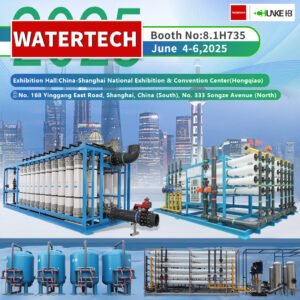Reverse Osmosis & Water Treatment in Senegal
CHUNKE projects of Reverse Osmosis Water Treatment in Senegal including different types of water treatment systems.
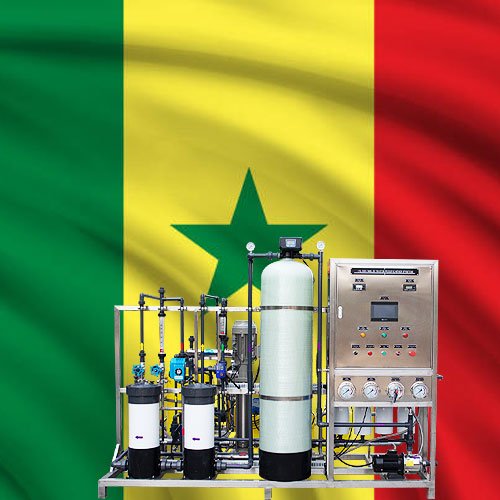
Senegal, officially the Republic of Senegal, is a country in West Africa, on the Atlantic Ocean coastline. Senegal is bordered by Mauritania to the north, Mali to the east, Guinea to the southeast and Guinea-Bissau to the southwest. Senegal nearly surrounds the Gambia, a country occupying a narrow sliver of land along the banks of the Gambia River, which separates Senegal’s southern region of Casamance from the rest of the country. Senegal also shares a maritime border with Cape Verde. Senegal’s economic and political capital is Dakar.
Senegal is notably the westernmost country in the mainland of the Old World, or Afro-Eurasia. It owes its name to the Senegal River, which borders it to the east and north. The climate is typically Sahelian, though there is a rainy season. Senegal covers a land area of almost 197,000 square kilometers (76,000 sq mi) and has a population of around 17 million. The state is a unitary presidential republic; since the country’s foundation in 1960, it has been recognized as one of the most stable countries on the African continent.
Total renewable water resources in Senegal
In 2020, renewable water resources per capita for Senegal was 2,327.4 cubic meters per year. Between 1971 and 2020, renewable water resources per capita of Senegal was declining at a moderating rate to shrink from 8,882 cubic meters per year in 1971 to 2,327.4 cubic meters per year in 2020.
- Renewable surface water: 37 billion cubic meters per year
- Renewable groundwater: 3.5 billion cubic meters per year
- Renewable water resources: 39 billion cubic meters per year
- Dependency ratio: 33.8 %
Meanwhile, CHUNKE provides wide range of filtration and economical solutions based on the Senegal’s water resources. So, our water treatment in Senegal becomes more popular accordingly.
- Surface water is water from river, lake which can be treated using different methods, such as Ultrafiltration Systems, Brackish Water RO accordingly.
- Desalination can be used for water from ocean, or sea source, which can be treated using Sea Water Reverse Osmosis Systems; Desalination Systems
- Ground Water or brackish water is from water located in the pore space of soil and rock “Borehole well”, which can be treated using Reverse Osmosis Systems, Borehole Water Filtration Systems, Well Water Filtration Systems, Chemical Dosing, UV Water Sterilizer accordingly.
- Government water supply, which could have high level of hardness or high level of chlorine, can be treated with Water Softener System, Media Water Filters.
Reverse Osmosis Systems for Senegal
Water scarcity and contamination are significant challenges faced by many countries around the world, including Senegal. With a population of over 16 million people, access to clean and safe water is crucial for the health and well-being of the Senegalese people. In this article, we will explore the various methods and technologies used in water treatment in Senegal, including reverse osmosis, desalination systems, borehole water treatment, and more. Let’s dive in!
CHUNKE Projects of Water Treatment in Senegal
Meanwhile, CHUNKE designs and produces water treatment systems that meet the World Health Organization requirements. So, our water treatment in Senegal is suitable for drinking.
CHUNKE has over 15 years of experience as a global provider of B2B water treatment solutions for a variety of applications and industries, we offer a large selection of all types of reverse osmosis, ultrafiltration, electrodeionization and water treatment systems to meet your industrial needs accordingly. CHUNKE’s extensive global experience in engineering and manufacturing allows us to pre-engineer and customize water treatment and reverse osmosis systems to meet a wide range of customer requirements and specifications.
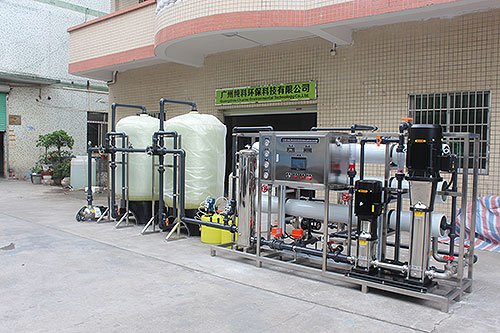
5000LPH Brackish Water Desalination System
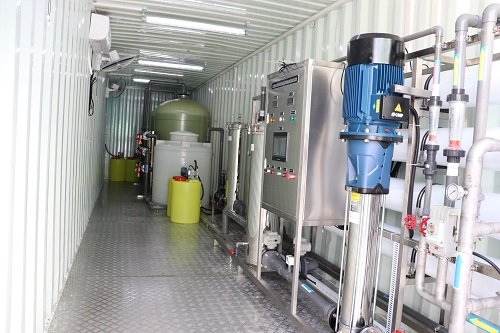
14TPH Containerized Reverse Osmosis System
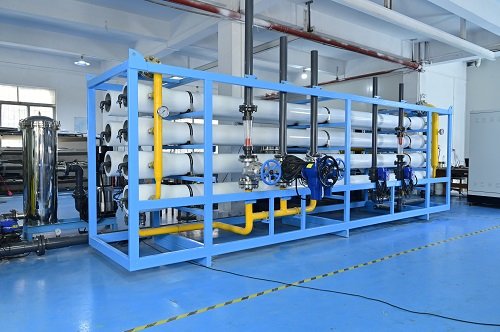
25TPH Reverse Osmosis System for Drinking
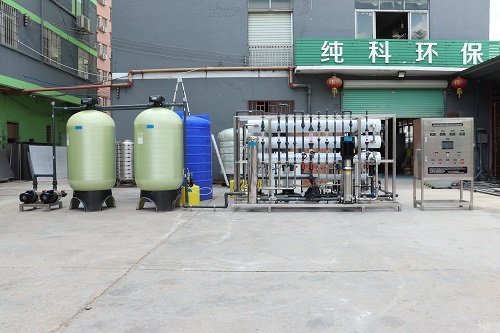
5000LPH RO Salt Water Purifier for Irrigation
The Role of Reverse Osmosis Water Treatment in Senegal
Reverse osmosis (RO) is a widely used water treatment technology in Senegal. It is particularly effective in removing impurities, contaminants, and dissolved salts from water, making it safe for consumption. RO systems work by applying pressure to force water through a semi-permeable membrane, leaving behind unwanted substances. These systems have proven to be highly efficient in providing clean drinking water, especially in areas where access to fresh water is limited. Senegal has embraced the use of RO systems in various settings, including households, industries, and public facilities, accordingly.
Desalination Systems: Tapping into the Ocean's Potential
As a coastal country, Senegal has a vast potential for utilizing desalination systems to address water scarcity. Desalination involves the process of removing salt and other minerals from seawater, making it suitable for drinking and irrigation purposes. By harnessing the power of reverse osmosis or other desalination technologies, Senegal can tap into the abundant resources of the ocean and provide a sustainable solution for water supply in coastal regions. Desalination systems can play a vital role in ensuring a reliable source of clean water for both urban and rural communities in Senegal.
Borehole Water Treatment: Accessing Groundwater Safely
Groundwater plays a significant role in meeting the water needs of Senegal’s population. Borehole wells provide access to this valuable resource, but it is essential to ensure that the water is treated and safe for consumption. Borehole water treatment systems, including reverse osmosis, chemical dosing, and UV water sterilizers, are utilized to remove impurities and contaminants from the groundwater. These treatment methods help maintain the quality and safety of the water supply, protecting the health of the Senegalese people.
Irrigation and Agriculture
Agriculture is a significant sector in Senegal, and ensuring access to clean and reliable water for irrigation is crucial for agricultural productivity. So, reverse osmosis water treatment systems can be used to treat brackish or saline water, making it suitable for irrigation purposes. By utilizing RO systems, farmers can maximize crop yields and reduce the risk of soil salinity, ultimately contributing to food security and sustainable agricultural practices.
Containerized Water Treatment Plants: Portable Solutions for Remote Areas
In remote areas with limited infrastructure, containerized water treatment plants offer a practical and portable solution. These plants are compact, self-contained units that can be easily transported and set up in areas where access to clean water is scarce. Containerized water treatment plants are equipped with various technologies, including reverse osmosis, filtration systems, and disinfection methods, to ensure the purification of water from different sources. These mobile units provide an efficient and flexible approach to water treatment, catering to the unique needs of remote communities in Senegal.
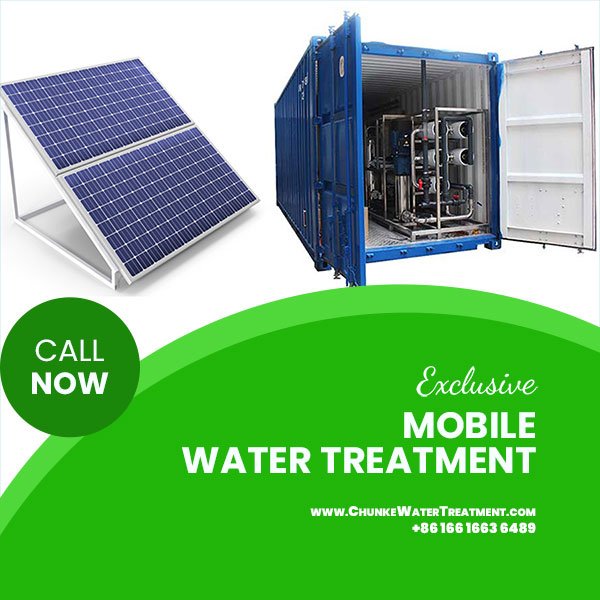
Ultrafiltration: Enhancing Water Quality
Ultrafiltration is another effective water treatment method employed in Senegal. This technology uses a membrane to remove microscopic particles, bacteria, viruses, and other contaminants from water. Ultrafiltration systems are commonly used in conjunction with other treatment methods, such as reverse osmosis, to enhance the overall water quality. By incorporating ultrafiltration into the water treatment process, Senegal can ensure the removal of even the smallest impurities, providing clean and safe water to its population, accordingly.
Water Softener Systems: Addressing Hard Water Issues
In some areas of Senegal, the water supplied by the government may have high levels of hardness or chlorine. Water softener systems are employed to address these issues and improve the quality of the water. These systems work by removing minerals that cause water hardness, such as calcium and magnesium ions, through a process called ion exchange. Water softener systems play a crucial role in reducing the negative effects of hard water, such as scale buildup, and ensure a more pleasant and efficient water usage experience, accordingly.
The Importance of Water Treatment in Senegal
Access to clean and safe water is essential for the health, well-being, and socio-economic development of Senegal. By investing in water treatment technologies and infrastructure, the country can address water scarcity, reduce waterborne diseases, and improve the overall quality of life for its citizens. Water treatment systems, such as reverse osmosis, desalination, borehole water treatment, containerized plants, ultrafiltration, and water softeners, are instrumental in achieving these goals, accordingly.
Chunke is Trusted Water Treatment Supplier from China
In Senegal, Chunke Water Treatment, a leading supplier of reverse osmosis systems from China, has been actively involved in providing water treatment solutions. With over 15 years of industry experience, Chunke Water Treatment offers a wide range of reverse osmosis and water treatment systems tailored to meet the specific needs of industries and communities in Senegal.
Chunke Water Treatment’s expertise in producing high-quality reverse osmosis systems has contributed to improving water treatment capabilities in Senegal. So, their reliable and efficient RO plants have been implemented in various projects across the country, ensuring access to clean and safe drinking water.

